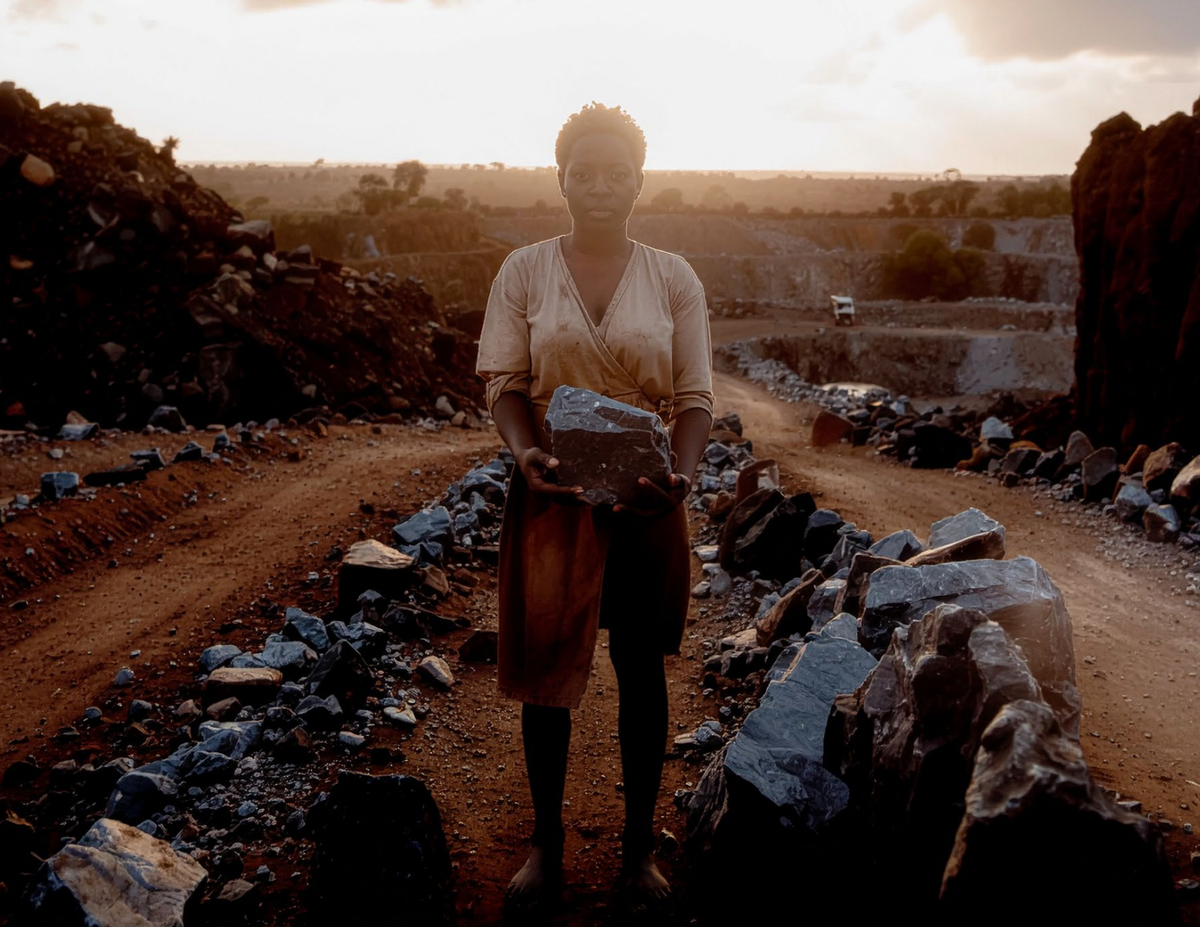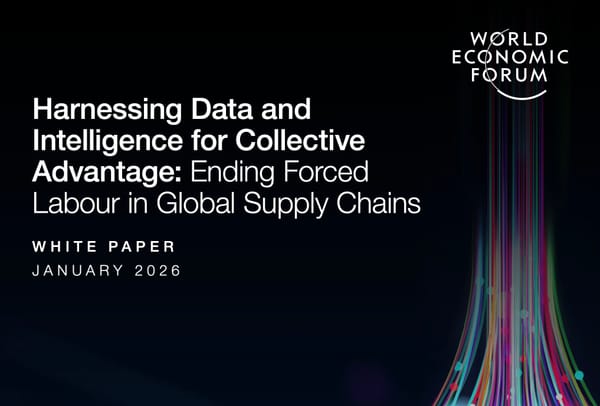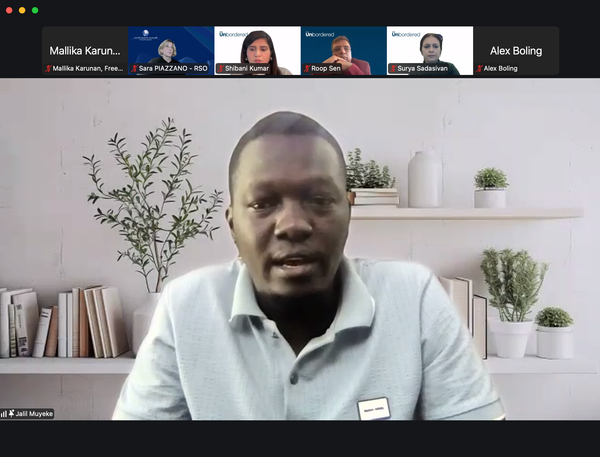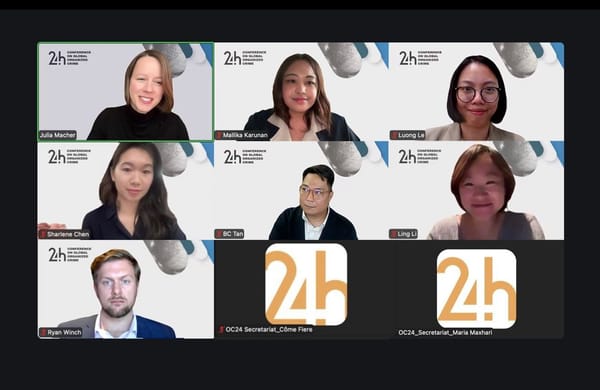Funding for worker-driven due diligence is decreasing despite new risks
Human rights donors should mobilize funding for community-led due diligence initiatives, the IOM requests inputs for its Global Strategy on Migration, Business and Human Rights, and the OSCE seeks survivor leaders for its advisory council.

A new Swedwatch report shows that limited funding for worker- and community-driven due diligence approaches is undermining efforts to hold companies accountable to human rights and environmental standards. The research found that funding was low and declining, and that its short-term, inflexible nature made it inaccessible to those actors with the greatest proximity to business-impacted communities and workers. Meanwhile, resources are instead channeled to failed industry approaches reliant on self-disclosure, with Environmental, Social and Governance (ESG) ratings products worth more than 80 times the human rights foundation funding for research and documentation.
The report comes amid ongoing concerns about upstream labour conditions, with a new investigation by China Labor Watch detailing the excessive hours, low pay, and informal working arrangements in workshops across China’s Guangzhou district, which produces clothing for retailers such as Shein. And a new report from the Rights Lab at the University of Nottingham details the severe human rights abuses and environmental impacts linked to cobalt mining in the Democratic Republic of the Congo, where 76 per cent of the world’s cobalt is sourced. The study found widespread forced and child labour, unsafe conditions, and poverty wages, and calls for independent, locally led due diligence to ensure cobalt supply chains meet human rights and environmental standards.
Meanwhile, The Liability Report, an investigative project by non-profit think tank Migrant 88 which aims to expose corporate malfeasance around forced labour, deceptive sustainability practices, ESG manipulation, and profit-driven exploitation, has released a publication on the impact of U.S. tariffs, stating that, “The current tariff measures have created a high-risk environment for the erosion of both labour and environmental standards across global supply chains. Buyer-driven cost-cutting now threatens to spill into sectors and markets unrelated to the U.S., exploiting the pattern that once concessions are made in one production line, they are often applied universally.”
Using data from the Human Rights Funders Network, Swedwatch estimates that in 2020 – the latest available year – just 0.62 per cent of combined philanthropic funding and Official Development Assistance (ODA) supported worker- and community-driven approaches to due diligence. The resulting funding gaps are particularly pronounced when it comes to specific strategies that are necessary to enable effective worker-driven initiatives, such as protection measures to safeguard individuals from retaliation, legal support to pursue claims and enforce rights, and community-organizing strategies that build collective power, coordination, and advocacy among affected workers and communities.
Furthermore, restrictive, risk-intolerant and overly burdensome funding practices mean that the stakeholders most trusted by communities are the least likely to access funding – human rights defenders receive only 11 per cent of ODA and only around half of that reaches local NGOS and activists. Interviews with civil society groups indicate that long-term sustainable funding is essential for building trust with communities and enabling follow up on long-term accountability processes – but most funding operates on short time frames of 12 months or less.
Meanwhile, as mHREDD legislation gains traction, a growing industry of for-profit actors, including social audit firms, ESG service providers, and sustainability software companies, is stepping in to meet corporate compliance needs. Though often promoted through polished communications strategies, research has documented their failure to capture the experiences of workers and communities, let alone deliver justice for them. While these approaches cannot shield companies from their due diligence obligations, rights violations risk being drowned out by both the volume of data within ESG approaches and company efforts to suppress negative stories – meaning that even responsible companies will struggle to identify violations within their value chains.
If funders and donors want to meet the opportunity posed by mHREDD legislation and enable meaningful corporate accountability, they must mobilize funding to empower workers, focusing particularly on a systems approach that addresses intersecting forms of oppression, invests in the broader ecosystem, and helps build a rights-based economy, the report suggests. It recommends increasing collaboration between business and human rights funders and other thematic funders including those focusing on poverty, health and climate; investing in approaches such as industry fees which ensure companies pay their fair share and move beyond failed approaches by centering workers and communities; and pushing resources towards the funding models that are providing accessible, flexible, long-term and systems-oriented support.
Here’s a roundup of other noteworthy news and initiatives:
The International Organization for Migration (IOM) is developing a Global Strategy on Migration, Business and Human Rights to support migrant worker protections and responsible recruitment. They are inviting stakeholders to take part in a public survey to share views on trends, challenges, and collaboration opportunities, helping shape the strategy’s focus and partnerships.
The U.S. Department of Justice has opened its largest-ever human trafficking victim compensation process, making more than US$200 million in forfeited assets from Backpage.com available to eligible claimants. The process uses asset forfeiture to return funds to victims in one of the most extensive restitution efforts of its kind.
This blog article reflects on the ways in which major staff cuts to the U.S. State Department’s Office to Monitor and Combat Trafficking in Persons are weakening local anti-trafficking efforts in the United States. It explains how reduced federal leadership and resources are straining community-based responses, increasing pressure on local organizations, and heightening the need for coordinated, locally driven strategies to sustain progress.
A HaRDstories feature explores how the wives of imprisoned Cambodian opposition figures are responding to shrinking political freedoms and ongoing state surveillance. In a context in which dissent is heavily suppressed, their efforts reflect the persistence of grassroots advocacy for political rights despite significant personal and financial pressures.
A new report by the Global Initiative Against Transnational Organized Crime uses strategic foresight to explore seven plausible scenarios for the ways in which organized crime in the Western Balkans may evolve by 2035. Grounded in megatrends and expert analysis, it highlights risks such as state-embedded criminal networks, cybercrime, and climate-driven scarcity, while identifying opportunities for reform and stronger international cooperation.
The OSCE Office for Democratic Institutions and Human Rights (ODIHR) is seeking survivor leaders from across the OSCE region for the next term of its International Survivors of Trafficking Advisory Council (ISTAC). Building on the work of its first cohort, members will advise on anti-trafficking policy and practice; applications close on 30 September 2025.




